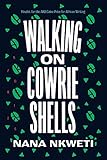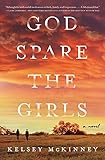We wouldn’t dream of abandoning our vast semi–annual Most Anticipated Book Previews, but we thought a monthly reminder would be helpful (and give us a chance to note titles we missed the first time around). Here’s what we’re looking out for this month. Let us know what you’re looking forward to in the comments!
Want to know about the books you might have missed? Then go read our most recent book preview. Want to help The Millions keep churning out great books coverage? Then sign up to be a member today.
Filthy Animals by Brandon Taylor: In this series of linked stories, young creative people in the Midwest navigate loneliness, intimacy, and violence. In many ways, the book is a continuation of Taylor’s highly acclaimed debut novel, Real Life, which follows Wallace, a Black queer biochemistry PhD student in the Midwest, as he explores failure, grief, and confusing straight men. In other ways, it is a departure — and offers a glimpse into Taylor’s true literary love, the short story form. (Jacqueline)
The Other Black Girl by Zakiya Dalila Harris: Twenty-six-year-old editorial assistant Nella is the only Black woman at her publishing company until another Black woman is hired and quickly becomes a favorite in the office–just as Nella starts receiving threatening notes at work. Attica Locke raves, “Zakiya Dalila Harris has pulled back the curtain on the publishing industry, but in doing so, she has also perfectly captured a social dynamic that exists in job cultures as varied as tech, finance, academia, or hell, even retail and fast food. Oh, beware of the “OBGs”—Other Black Girls—y’all. As we should all be aware of the psychic cost to Black women of making ourselves palatable to institutions that use our cultural cache for their own ends while disregarding any part of our hearts and minds that they either can’t or won’t understand.” (Lydia)
Bewilderness by Karen Tucker: The stress of Covid-19 has, according to the CDC, escalated opioid usage, and synthetic opioids like fentanyl continue to drive OD fatalities, which are 10% higher than 12 months ago. In her debut novel, Bewilderness, Karen Tucker puts a human face on this ongoing public health catastrophe, as she tells the story of Irene and Luce, pill-addicts and best friends. More than merely evoking the desperation of opioid abuse, Bewilderness provides a funny and touching story of female friendship—as Rufi Thorpe says, “Karen Tucker has the chaotic truth-telling energy of a sage and a lack of sentimentality that would give Hunter S. Thompson stomach cramps. This is the novel the opiate epidemic needs.” (Adam Price)
 Walking on Cowrie Shells by Nana Nkweti: In her genre-bending debut story collection, the Cameroonian-American writer and Iowa Writers’ Workshop graduate Nana Nkweti mixes realism with clever inversions of numerous genres, including horror, mystery, myth, young adult, and science fiction. You’ll meet linguistic anthropologists, comic book enthusiasts, a PR pro trying to spin a zombie outbreak in West Africa, a graphic novelist, a pregnant pastor’s wife, a mermaid. This dazzler of a debut shines a spotlight on lives that bridge the divide between the cultures of Cameroon and America. Nkweti has said she hopes her stories entertain readers while also offering them a counterpoint to prevalent “heart of darkness” writing that too often depicts a singular African experience. (Bill)
Walking on Cowrie Shells by Nana Nkweti: In her genre-bending debut story collection, the Cameroonian-American writer and Iowa Writers’ Workshop graduate Nana Nkweti mixes realism with clever inversions of numerous genres, including horror, mystery, myth, young adult, and science fiction. You’ll meet linguistic anthropologists, comic book enthusiasts, a PR pro trying to spin a zombie outbreak in West Africa, a graphic novelist, a pregnant pastor’s wife, a mermaid. This dazzler of a debut shines a spotlight on lives that bridge the divide between the cultures of Cameroon and America. Nkweti has said she hopes her stories entertain readers while also offering them a counterpoint to prevalent “heart of darkness” writing that too often depicts a singular African experience. (Bill)
 Everyone Knows Your Mother Is a Witch by Rivka Galchen: For the title alone, I’m in, no matter who wrote it. But then it’s also Rivka Galchen? Trying her hand at historical fiction? I’m hitting preorder. Based in 1618 Germany at the start of the 30 Years War it tells the story of Katherina Kepler, an illiterate woman known for her herbal remedies. When a neighbor accuses Katherina of poisoning her, Katherina’s brilliant son, an Imperial Mathematician, must defend her. Galchen, known for her fiction and journalism, drew on real historical documents to write her tale of a family threatened by superstitious fears. (Hannah)
Everyone Knows Your Mother Is a Witch by Rivka Galchen: For the title alone, I’m in, no matter who wrote it. But then it’s also Rivka Galchen? Trying her hand at historical fiction? I’m hitting preorder. Based in 1618 Germany at the start of the 30 Years War it tells the story of Katherina Kepler, an illiterate woman known for her herbal remedies. When a neighbor accuses Katherina of poisoning her, Katherina’s brilliant son, an Imperial Mathematician, must defend her. Galchen, known for her fiction and journalism, drew on real historical documents to write her tale of a family threatened by superstitious fears. (Hannah)
 Double Blind by Edward St. Aubyn: A little knowledge, they say, can be a dangerous thing. But is there such a thing as too much knowledge? Of the world we live in? Of the people we live with? In St. Aubyn’s seventh novel the sacred and the profane, the rough and the refined are set against each other as the passionate and the rational play out in the lives of three close friends. No one comes out unscathed, or unenlightened. (Il’ja)
Double Blind by Edward St. Aubyn: A little knowledge, they say, can be a dangerous thing. But is there such a thing as too much knowledge? Of the world we live in? Of the people we live with? In St. Aubyn’s seventh novel the sacred and the profane, the rough and the refined are set against each other as the passionate and the rational play out in the lives of three close friends. No one comes out unscathed, or unenlightened. (Il’ja)
 All the Water I’ve Seen Is Running by Elias Rodriques: Life is change, and nowhere is that more potently illustrated than in a life confronted by its past. When Daniel Henriquez travels from New York to his old stomping grounds in the American South for the funeral of a girl he once loved, he is confronted by the tension, the true challenge, of owning our identities and owning up to them with those who know us well. On friendship, love, and the rough bite of life on the margins. (Il’ja)
All the Water I’ve Seen Is Running by Elias Rodriques: Life is change, and nowhere is that more potently illustrated than in a life confronted by its past. When Daniel Henriquez travels from New York to his old stomping grounds in the American South for the funeral of a girl he once loved, he is confronted by the tension, the true challenge, of owning our identities and owning up to them with those who know us well. On friendship, love, and the rough bite of life on the margins. (Il’ja)
 The Great Mistake by Jonathan Lee: The publisher has laid some tripwires in describing this latest novel from the author of High Dive: “New York…turn of the twentieth century…fortune…murder.” A private man deeply invested in the public welfare of one of the world’s great cities has his privacy shredded even as his life is ended, in a novel Katy Simpson Smith compares to Denis Johnson’s Train Dreams and John Williams’ Stoner. (Il’ja)
The Great Mistake by Jonathan Lee: The publisher has laid some tripwires in describing this latest novel from the author of High Dive: “New York…turn of the twentieth century…fortune…murder.” A private man deeply invested in the public welfare of one of the world’s great cities has his privacy shredded even as his life is ended, in a novel Katy Simpson Smith compares to Denis Johnson’s Train Dreams and John Williams’ Stoner. (Il’ja)
 Ghost Forest by Pik-Shuen Fung: Following the death of her father, a young woman is haunted by the unspoken history of her family and looks to put a voice to it. A daunting task “if your family doesn’t talk about feelings.” A valuable addition to the growing canon of work providing fresh views on the North American immigrant experience. (Il’ja)
Ghost Forest by Pik-Shuen Fung: Following the death of her father, a young woman is haunted by the unspoken history of her family and looks to put a voice to it. A daunting task “if your family doesn’t talk about feelings.” A valuable addition to the growing canon of work providing fresh views on the North American immigrant experience. (Il’ja)
 Somebody’s Daughter by Ashley C. Ford: In this memoir, writer, podcaster, and educator Ashley Ford tells the story of her upbringing. Amid struggles with poverty, rape, and her father’s incarceration, Ford describes the process through which she ultimately came to better understand herself, her surroundings, and her family. Glennon Doyle writes, “The gravity and urgency of Somebody’s Daughter anchored me to my chair and slowed my heartbeat—like no book has since Toni Morrison‘s The Bluest Eye.” (Jacqueline)
Somebody’s Daughter by Ashley C. Ford: In this memoir, writer, podcaster, and educator Ashley Ford tells the story of her upbringing. Amid struggles with poverty, rape, and her father’s incarceration, Ford describes the process through which she ultimately came to better understand herself, her surroundings, and her family. Glennon Doyle writes, “The gravity and urgency of Somebody’s Daughter anchored me to my chair and slowed my heartbeat—like no book has since Toni Morrison‘s The Bluest Eye.” (Jacqueline)
 Revival Season by Monica West: A spectacular coming-of-age novel. Miriam’s father, one of the most famous preachers in the South, uses his healing powers to cure people of their diseases. But one summer, the fifteen-year-old Miriam starts to doubt her father’s powers and her faith after witnessing an incident. In the following year and through her painful exploration, Miriam has to confront and resolve the tension between feminism and faith. Revival Season is not only an inner journey of the becoming of a young lady in the South, but also a precise geological picture of the Bible Belt and how faith shapes the community and the family. (Jianan Qian)
Revival Season by Monica West: A spectacular coming-of-age novel. Miriam’s father, one of the most famous preachers in the South, uses his healing powers to cure people of their diseases. But one summer, the fifteen-year-old Miriam starts to doubt her father’s powers and her faith after witnessing an incident. In the following year and through her painful exploration, Miriam has to confront and resolve the tension between feminism and faith. Revival Season is not only an inner journey of the becoming of a young lady in the South, but also a precise geological picture of the Bible Belt and how faith shapes the community and the family. (Jianan Qian)
 How the Word is Passed by Clint Smith: The power of an itinerant narrator—Smith journeys to Monticello, Angola Prison, Blandford Cemetery, and downtown Manhattan—is that it reveals slavery’s expansive, geographical legacy. Smith tells his stories with the soul of a poet and the heart of an educator. Smith’s ambitious book is fueled by a humble sense of duty: he sought the wisdom of those who tell of slavery’s legacy “outside traditional classrooms and beyond the pages of textbooks”; public historians who “have dedicated their lives to sharing this history with others.” Smith channels the spirit of Toni Morrison here; the writer as one to pass on the word so that it is never forgotten. (Nick R.)
How the Word is Passed by Clint Smith: The power of an itinerant narrator—Smith journeys to Monticello, Angola Prison, Blandford Cemetery, and downtown Manhattan—is that it reveals slavery’s expansive, geographical legacy. Smith tells his stories with the soul of a poet and the heart of an educator. Smith’s ambitious book is fueled by a humble sense of duty: he sought the wisdom of those who tell of slavery’s legacy “outside traditional classrooms and beyond the pages of textbooks”; public historians who “have dedicated their lives to sharing this history with others.” Smith channels the spirit of Toni Morrison here; the writer as one to pass on the word so that it is never forgotten. (Nick R.)
 Last Comes the Raven by Italo Calvino (translated by Ann Goldstein): Calvino’s early stories shine here, as with the titular tale, originally published in The Paris Review in 1954: “The stream was a net of limpid, delicate ripples, with the water running through the mesh. From time to time, like a fluttering of silver wings, the dorsum of a trout flashed on the surface, the fish at once plunging zigzag down into the water.” Readers of Calvino know his mercurial ability to move from mimesis to mystery, his syntax full of glorious surprises. (Nick R.)
Last Comes the Raven by Italo Calvino (translated by Ann Goldstein): Calvino’s early stories shine here, as with the titular tale, originally published in The Paris Review in 1954: “The stream was a net of limpid, delicate ripples, with the water running through the mesh. From time to time, like a fluttering of silver wings, the dorsum of a trout flashed on the surface, the fish at once plunging zigzag down into the water.” Readers of Calvino know his mercurial ability to move from mimesis to mystery, his syntax full of glorious surprises. (Nick R.)
 Mona at Sea by Elizabeth Gonzalez James: I’m a sucker for both “late-blooming” life stories and plucky protagonists. Elizabeth Gonzalez James’s official bio tells us that she “was a waitress, a pollster, an Avon lady, and an opera singer” before sitting down to write, and her jacket copy describes the Millennial protagonist of her debut novel as “the sort who says exactly the right thing at absolutely the wrong moments, seeing the world through a cynic’s eyes.” Also she’s been both a Pushcart and Glimmer Train story nominee, which to my mind is still mad cred. I’m sold. (Sonya)
Mona at Sea by Elizabeth Gonzalez James: I’m a sucker for both “late-blooming” life stories and plucky protagonists. Elizabeth Gonzalez James’s official bio tells us that she “was a waitress, a pollster, an Avon lady, and an opera singer” before sitting down to write, and her jacket copy describes the Millennial protagonist of her debut novel as “the sort who says exactly the right thing at absolutely the wrong moments, seeing the world through a cynic’s eyes.” Also she’s been both a Pushcart and Glimmer Train story nominee, which to my mind is still mad cred. I’m sold. (Sonya)
 Animal by Lisa Taddeo: Following her bestselling Three Women, Lisa Taddeo has written a story of female rage, a novel that illustrates one woman’s evolution from prey to predator. When Joan, the protagonist, sees a man commit violence in front of her, she flees her New York City home, searching for the only person who can help her understand her past. As she unravels the traumatic events of her childhood that shaped her adult life, she starts developing the power to exact revenge. (Thom)
Animal by Lisa Taddeo: Following her bestselling Three Women, Lisa Taddeo has written a story of female rage, a novel that illustrates one woman’s evolution from prey to predator. When Joan, the protagonist, sees a man commit violence in front of her, she flees her New York City home, searching for the only person who can help her understand her past. As she unravels the traumatic events of her childhood that shaped her adult life, she starts developing the power to exact revenge. (Thom)
 With Teeth by Kristen Arnett: In the follow-up to her best-selling debut, Mostly Dead Things, Arnett explores a queer family that is struggling to hold itself together. Sammie Lucas spends her days feeling resentful and removed from her wife Monika, and worrying over her son Samson. As Samson grows and becomes increasingly hostile, all their lives begin to implode. “With Teeth is a wonderfully sticky novel about motherhood, partnership, sex, and love,” writes Emma Straud. “Kristen Arnett lets her characters have the run of the place, and it’s delicious fun to watch them do, say, and think things they’ll regret.” (Carolyn)
With Teeth by Kristen Arnett: In the follow-up to her best-selling debut, Mostly Dead Things, Arnett explores a queer family that is struggling to hold itself together. Sammie Lucas spends her days feeling resentful and removed from her wife Monika, and worrying over her son Samson. As Samson grows and becomes increasingly hostile, all their lives begin to implode. “With Teeth is a wonderfully sticky novel about motherhood, partnership, sex, and love,” writes Emma Straud. “Kristen Arnett lets her characters have the run of the place, and it’s delicious fun to watch them do, say, and think things they’ll regret.” (Carolyn)
 God Spare the Girls by Kelsey McKinney: In journalist McKinney’s debut novel, sisters Abigail and Caroline uncover a lifechanging secret about their father—the head pastor at the local evangelical megachurch. When their world splits open, the sisters flee to the ranch handed down to them by their grandmother, where they will have to take stock of who or what mattters—and who or what is worth saving. With praise from Rumaan Alam, Lynn Steger Strong, Esmé Weijun Wang, R.O. Kwon, among others, this coming-of-age debut about sisterhood, faith, community, and Evangelical Christianity is sure to delight. (Carolyn)
God Spare the Girls by Kelsey McKinney: In journalist McKinney’s debut novel, sisters Abigail and Caroline uncover a lifechanging secret about their father—the head pastor at the local evangelical megachurch. When their world splits open, the sisters flee to the ranch handed down to them by their grandmother, where they will have to take stock of who or what mattters—and who or what is worth saving. With praise from Rumaan Alam, Lynn Steger Strong, Esmé Weijun Wang, R.O. Kwon, among others, this coming-of-age debut about sisterhood, faith, community, and Evangelical Christianity is sure to delight. (Carolyn)
 To Write as If Already Dead by Kate Zambreno: In her formally ambitious and genre blurring new book, Guggenheim Fellow Zambreno writes about trying (and failing) to write a critical study of Hervé Guibert’s To the Friend Who Did Not Save My Life—as well as ruminating on themes like friendship, morality, literature, time, and memory. Moyra Davey says, “This book is a tour de force. I was completely awestruck by the way Zambreno enacts the concept of the title, and by the way she writes the body, hers and Guibert’s. It is a moving performative act, a document of our time from the trenches, and a brilliant critical study.” (Carolyn)
To Write as If Already Dead by Kate Zambreno: In her formally ambitious and genre blurring new book, Guggenheim Fellow Zambreno writes about trying (and failing) to write a critical study of Hervé Guibert’s To the Friend Who Did Not Save My Life—as well as ruminating on themes like friendship, morality, literature, time, and memory. Moyra Davey says, “This book is a tour de force. I was completely awestruck by the way Zambreno enacts the concept of the title, and by the way she writes the body, hers and Guibert’s. It is a moving performative act, a document of our time from the trenches, and a brilliant critical study.” (Carolyn)
 Morningside Heights by Joshua Henkin: Set in 1976 New York, Pru Steiner arrives in the city and falls headlong into a marriage with Spence Robin, her Shakespeare professor. When Spence is diagnosed with early-onset Alzheimers, Pru must grapple with the grief, loneliness, and pain of caretaking. Amidst the heartache, two unlikely men enter her life—one brings the potential of romance; the other is Spence’s estranged son from his first marriage—and provide a bit of hope. Sigrid Nunuz writes, “[Morningside Heights’] greatest achievement is to make us feel that we are in the presence of real people, living out their joys and sorrows and making their way in the real world.” (Carolyn)
Morningside Heights by Joshua Henkin: Set in 1976 New York, Pru Steiner arrives in the city and falls headlong into a marriage with Spence Robin, her Shakespeare professor. When Spence is diagnosed with early-onset Alzheimers, Pru must grapple with the grief, loneliness, and pain of caretaking. Amidst the heartache, two unlikely men enter her life—one brings the potential of romance; the other is Spence’s estranged son from his first marriage—and provide a bit of hope. Sigrid Nunuz writes, “[Morningside Heights’] greatest achievement is to make us feel that we are in the presence of real people, living out their joys and sorrows and making their way in the real world.” (Carolyn)
 The Portrait of a Mirror by A. Natasha Joukovsky: In her funny, sharp debut, Joukovsky reimagines the muth of Narcissus in the form of two beautiful, wealthy, and well-intentioned (but selfish) couples: one in New York, one in Philadelphia. When their paths cross and their lives becomes increasingly emeshed, they fall prey to each other and their own outsized desires. Emily Temple raves, “The Portrait of a Mirror is an absolute delight: an intellectually dazzling, deliciously wicked novel about love, art, illusion, and modernity—not to mention a pitch-perfect satire of New York’s beautiful people. (Carolyn)
The Portrait of a Mirror by A. Natasha Joukovsky: In her funny, sharp debut, Joukovsky reimagines the muth of Narcissus in the form of two beautiful, wealthy, and well-intentioned (but selfish) couples: one in New York, one in Philadelphia. When their paths cross and their lives becomes increasingly emeshed, they fall prey to each other and their own outsized desires. Emily Temple raves, “The Portrait of a Mirror is an absolute delight: an intellectually dazzling, deliciously wicked novel about love, art, illusion, and modernity—not to mention a pitch-perfect satire of New York’s beautiful people. (Carolyn)
 The Confession of Copeland Cane by Keenan Norris: Set in the near future in East Oakland, California, eighteen-year-old Copeland Cane is a normal Black teenager living in an dystopian police state where brutality is televised and a deadly pandemic is raging. When he attends a protest that turns violent, Copeland becomes a fugitive of the state. Nayomi Munaweera writes: “This book is praise song, love letter, and requiem for Black and Brown bodies caught up in California’s post-pandemic, private-police ruled near future. A powerfully voiced, page-turning novel and required reading for anyone attempting to understand the struggle for racial justice.” (Carolyn)
The Confession of Copeland Cane by Keenan Norris: Set in the near future in East Oakland, California, eighteen-year-old Copeland Cane is a normal Black teenager living in an dystopian police state where brutality is televised and a deadly pandemic is raging. When he attends a protest that turns violent, Copeland becomes a fugitive of the state. Nayomi Munaweera writes: “This book is praise song, love letter, and requiem for Black and Brown bodies caught up in California’s post-pandemic, private-police ruled near future. A powerfully voiced, page-turning novel and required reading for anyone attempting to understand the struggle for racial justice.” (Carolyn)
 What Makes You Think You’re Awake? by Maegan Poland: Whether its a honeymoon trip that takes a turn for the worst or a woman who must choose how she uses her time-freezing backyard shed, Poland’s short story collection explores the human condition in all its messy glory. Winner of the 2020 Bakwin Award, judge Carmen Maria Machado calls the short stories “a wonderful debut; a collection of frank, funny, and heartbreaking stories that delve into the mire of human loneliness.” (Carolyn)
What Makes You Think You’re Awake? by Maegan Poland: Whether its a honeymoon trip that takes a turn for the worst or a woman who must choose how she uses her time-freezing backyard shed, Poland’s short story collection explores the human condition in all its messy glory. Winner of the 2020 Bakwin Award, judge Carmen Maria Machado calls the short stories “a wonderful debut; a collection of frank, funny, and heartbreaking stories that delve into the mire of human loneliness.” (Carolyn)
 Dear Senthuran by Akwaeke Emezi: In their epistolary memoir, Emezi—the award-winning, genre-shifting author of Freshwater, Pet, and The Death of Vivek Oji—explores their life, creativity, gender, relationships, and sense of self. “A remarkable memoir by a writer who doesn’t shy away from sharing their ambitions or their vulnerabilities,” says Booklist. (Carolyn)
Dear Senthuran by Akwaeke Emezi: In their epistolary memoir, Emezi—the award-winning, genre-shifting author of Freshwater, Pet, and The Death of Vivek Oji—explores their life, creativity, gender, relationships, and sense of self. “A remarkable memoir by a writer who doesn’t shy away from sharing their ambitions or their vulnerabilities,” says Booklist. (Carolyn)
The post June Preview: The Millions Most Anticipated (This Month) appeared first on The Millions.
Source : June Preview: The Millions Most Anticipated (This Month)










